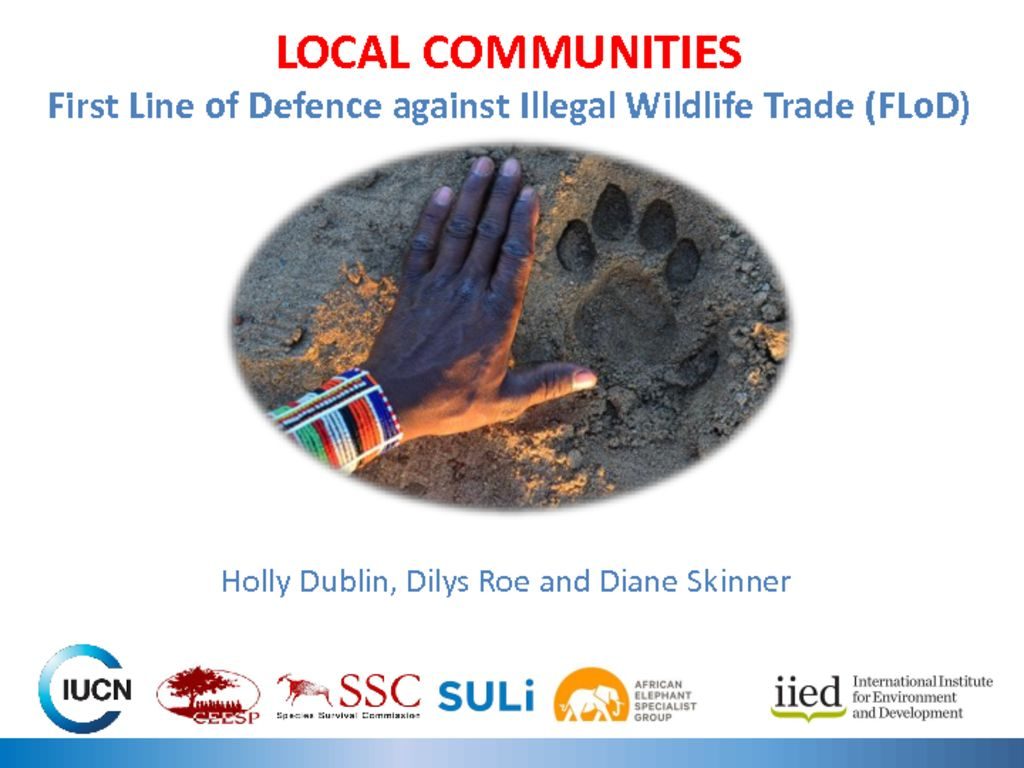11 Apr Local Communities: First Line of Defense in Combatting Illegal Wildlife Trade
It has been approximately a decade since heavy poaching of elephants, rhinos and growing illegal trade in other high-value species to distant foreign markets gathered pace across Africa; many places experienced the heaviest losses since the late 1970s and early 1980s, and species such as pangolin have increased in demand. Response to the crisis was intense and followed a three-pronged approach: “stop the killing, stop the trafficking, stop the demand”. It was only in 2013 that people began to look beyond heavy law enforcement approaches and ask “how could we engage the local communities” that live side by side with these highly-valued species to help combat this growing threat.
In response to various policy signals on this issue, IUCN SULi, IIED and partners initiated their “Beyond Enforcement” work in early 2015. Recognizing the need to operationalize the approach at ground level, IUCN ESARO, SULi Eastern and Southern Africa, IIED, the African Elephant Specialist Group and community partners in Kenya built a new programme, “Local Communities: First Line of Defence” (FLoD) to interrogate, understand, and promote the role that local communities could play in tackling growing IWT. The project is testing a conceptual baseline “Theory of Change” against the understanding of project implementers and communities regarding the causal links between poaching in their respective areas and four main pathways (i.e. a) disincentivising activities contributing to IWT, b) increasing incentives for wildlife stewardship, c) decreasing the cost of living with wildlife and d) supporting non-wildlife based livelihoods). Many surprising insights have been gained on community perceptions and realities around these issues, as well as potential flaws in project design.
In this session lessons learned to date were shared by members of the FLoD team, bringing the voices of communities to the front on this important topic. Experiences from around the world were gathered, helping to build the body of knowledge around this critical yet largely unexplored and previously under-appreciated area of interest.
Key Themes:
Wildlife & Fisheries, Governance, Rights & Conflict, Engagement, Education & Empowerment, Factors of Success in Community Conservation
Presenters:
Diane Skinner (IUCN CEESP/SSC Sustainable Use and Livelihoods Specialist Group)
Holly Dublin (IUCN CEESP/SSC Sustainable Use and Livelihoods Specialist Group, IUCN/SSC African Elephant Specialist Group)
Dilys Roe (IIED, IUCN CEESP/SSC Sustainable Use and Livelihoods Specialist Group)



